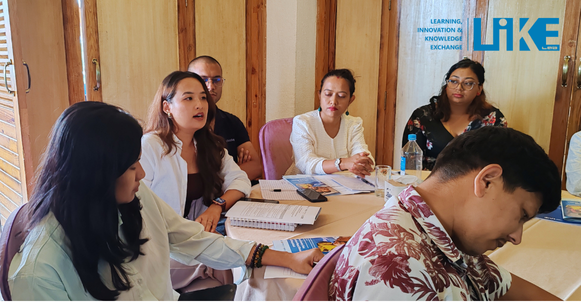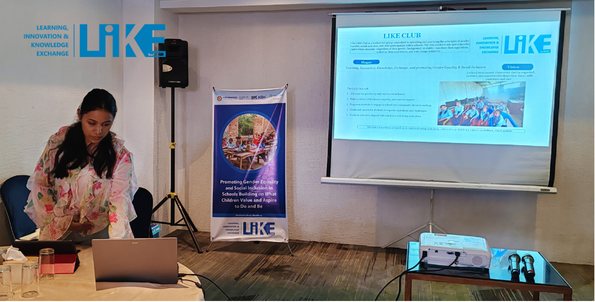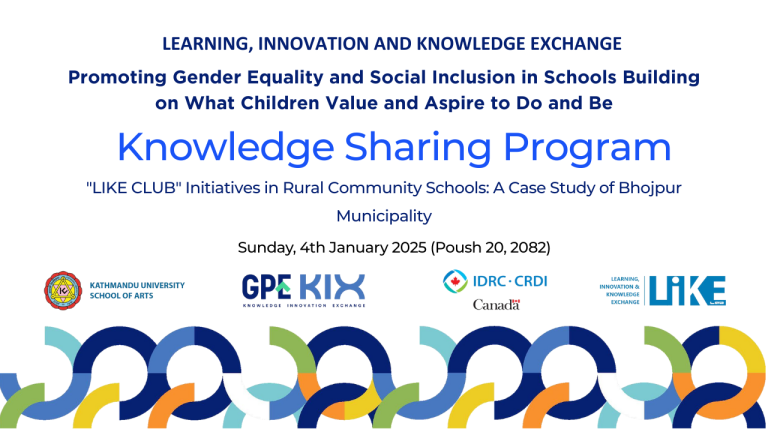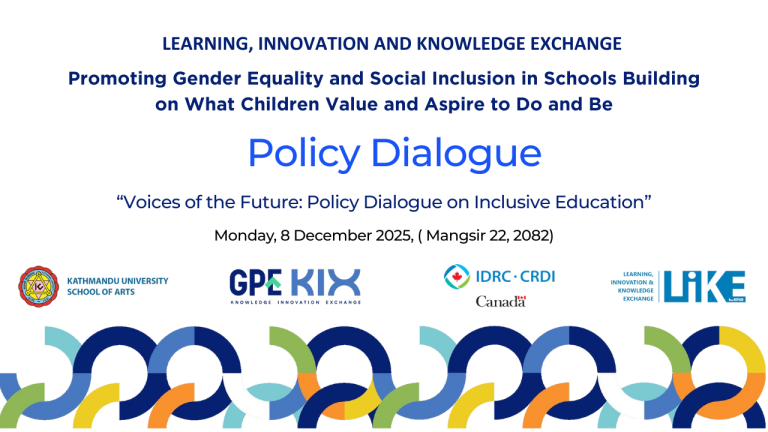

LALITPUR, NEPAL, JULY 18th, 2025 – The Learning, Innovation and Knowledge Exchange (LIKE) Lab at Kathmandu University School of Arts hosted a Knowledge Exchange Program on “Strengthening Schools through Child Clubs and Support Programs” at Alice Conference, Bakhundole. The event brought together education stakeholders from civil society, including researchers and development practitioners to discuss innovative approaches for fostering inclusive and child-friendly school environments.
Program Highlights
The program opened with welcoming remarks and was moderated by Ms. Anushka Shrestha, who introduced the broader goals of the Promoting Gender Equality and Social Inclusion in Schools: Building on What Children Value and Aspire to Do and Be (CVEC) project.
A felicitation session was held for Dr. Uddhab Pyakurel for his appointment as the Dean of Kathmandu University School of Arts, who in his inaugural speech underscored the importance of inclusive education in Nepal’s evolving context and encouraged integrating marginalized voices into educational reform.
The event also marked the official launch of a report by the Dean presenting Children’s Perspectives on Valued Well-Being Capabilities, offering critical insights into what students identify as essential for their growth and participation in schools.
Presentations
Institutionalizing Child Clubs
Ms. Utkrishta Sharma, Research Intern at LIKE Lab, presented her study “Institutionalizing Child Clubs in Rural Schools: Opportunities and Challenges in Bhojpur Municipality”.
Key findings included:
- Nepal’s child clubs, which began as NGO-led initiatives in the 1990s, now number over 3,000 nationwide.
- LIKE Lab’s Institutionalization Tracker measured integration across leadership, planning, training, and resources.
- While leadership commitment was strong, gaps remained in manuals, curriculum integration, and sustaining resources.
- 94% of surveyed students expressed willingness to join a LIKE Club, and 97% desired training on GESI topics.
Ms. Sharma emphasized integrating child clubs into school improvement plans, building teacher capacity, and engaging parents and local governments to sustain inclusive, safe spaces for student participation.
School Support Programs
Mr. Namgyal Ghale, from Social Lab, shared their School Support Program, which addresses gaps in primary education through:
- Building kitchens for mid-day meals in partnership with local wards and schools.
- Recreational therapy and financial stimulation models to motivate children.
- Fun, interactive English language tutorials and boot camps for teachers and students.
- Localizing SDGs in schools and implementing sustainable exit strategies to ensure long-term impact.
He stressed the importance of strong partnerships between parents, teachers, students, and government institutions to create vibrant, lifelong learning spaces.
Discussions and Reflections
The session featured active discussions on challenges such as integrating soft and social skills into curricula, sustainable funding, and overcoming community resistance. Case examples from Bara, Surkhet, and Rautahat highlighted successful initiatives like the Girls Empowerment Mainstream Project, which has graduated 300 girls on SRHR and GESI topics.
In his closing reflections, Dr. Binayak Krishna Thapa, Principal Investigator of the CVEC Project, emphasized the need for holistic and context-sensitive approaches to scale inclusive education initiatives across Nepal.



